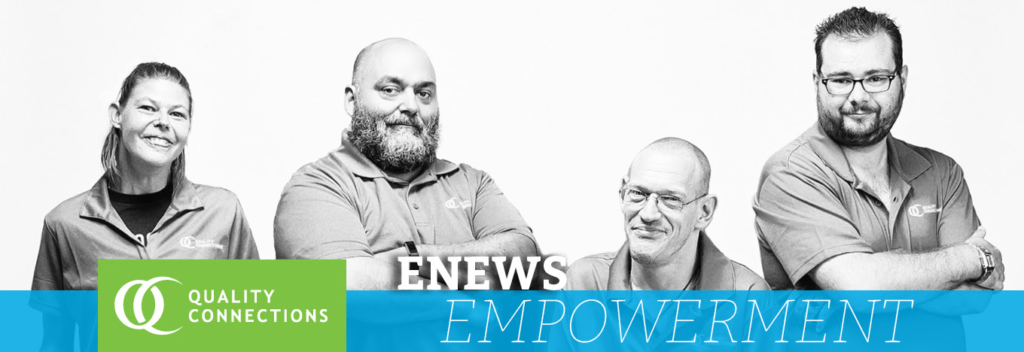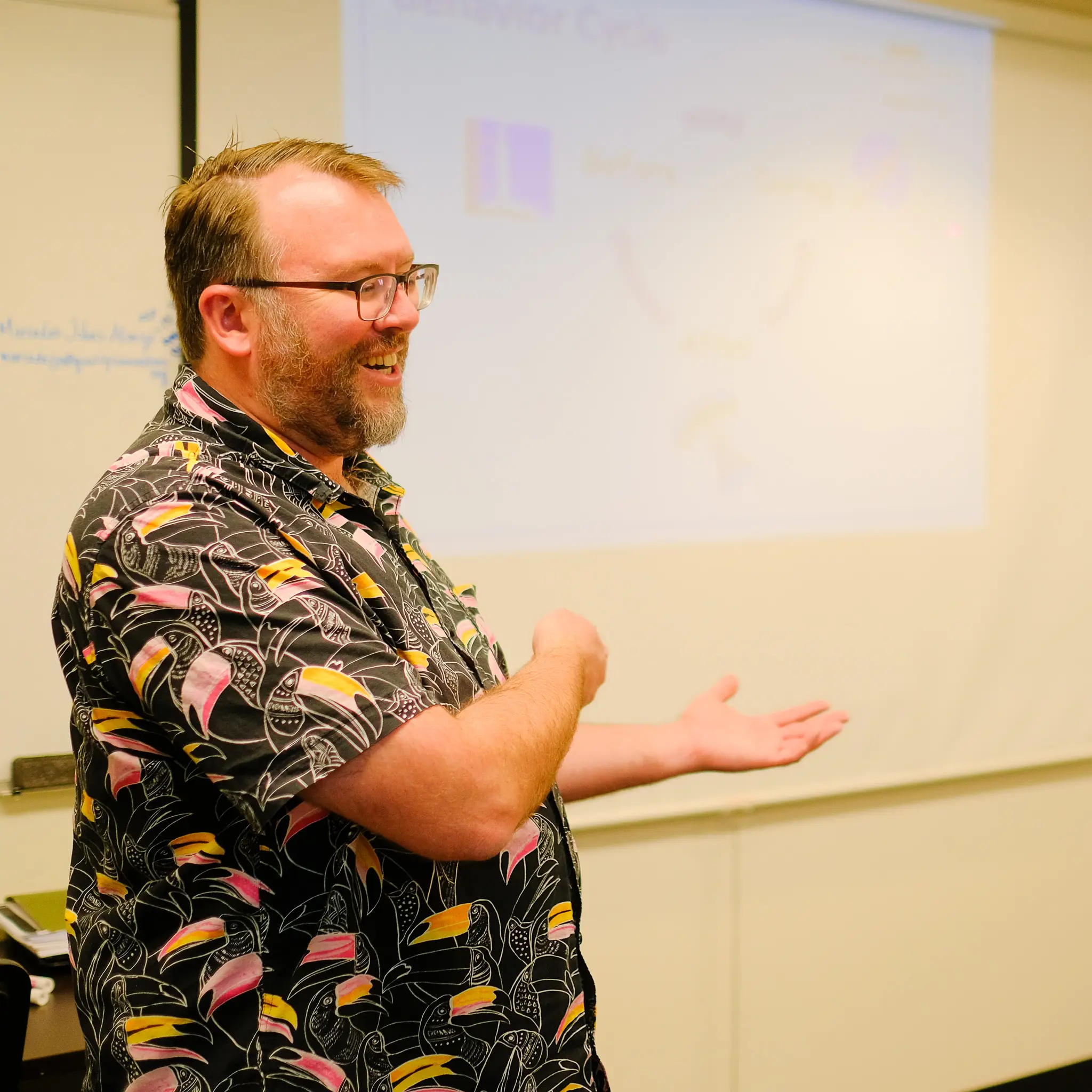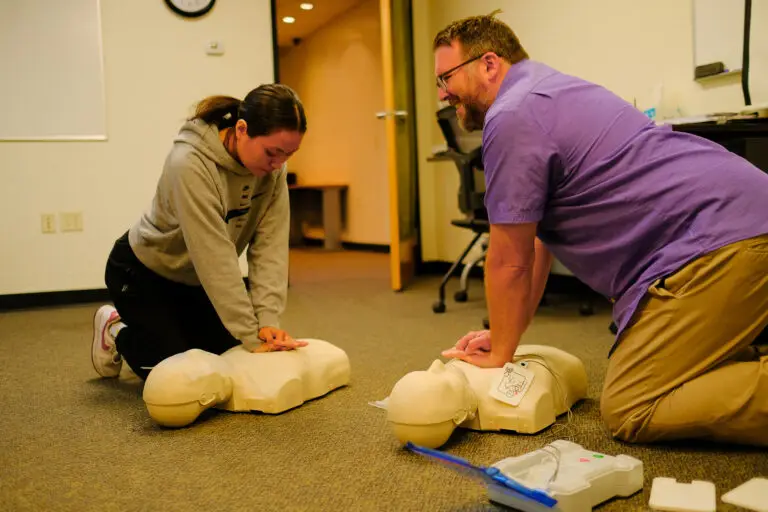Home > Empowering Our Support Teams
9 Empowering Our Support Teams


Caregiving staff at Quality Connections – from workers in our six group homes to job coaches to the instructors in our adult day program – undergo extensive training before they work with our members with developmental disabilities.
That training is conducted by Brandon Gill, our Behavioral Health Coordinator, who joined Quality Connections 12 years ago.
Brandon grew up in upstate New York and moved to Flagstaff about 20 years ago to be part of AmeriCorps Civilian Conservation Corps.
“It was a lot of trail work and cutting down trees for tree thinning,” he said.
A co-worker in the Conservation Corps began working with developmentally disabled adults and told Brandon about how much he enjoyed it. Brandon was intrigued and not long afterward he also pivoted to a new career as a caregiver.
“In fact, the training I had to take is very similar to what I teach now,” he said.
Much of what Brandon teaches is mandated by law, such as making sure that QC employees are certified in CPR and first aid. There’s also a requirement to know the protocols of physical intervention techniques that might be needed if a member is in danger or poses a danger to others.

But much of the training is about how to provide the best – yet least invasive – support to individuals with developmental disabilities. Known as Positive Behavior Support, it’s designed to focus on preservings an individual’s autonomy, safety, rights, and quality of life.
“It’s one of the hardest things to learn in this line of work,” he said. “Don’t do a lot, don’t do something for your client, just help a little bit so they can do it on their own. We want to help and it can be hard to learn to let go a little bit.”
By focusing on self-determination and self-advocacy, support teams can help our members live as independently as possible and generally lead a self-directed life.
In addition to training, Brandon also works with staff to develop individualized plans for each member that addresses challenges they face, things that might trigger negative behaviors, and strategies to redirect potentially negative behavior.
Another big lesson for all caregivers is separating emotions from behaviors, Brandon said.
“A lot of what we do is understanding how our emotions can hijack us and cause us – all of us – to do things and how to prevent that from escalating,” he said. “But at the end of the day, your emotions are okay. You’re going to feel the way you feel; it’s the actions that matter. You rarely regret how you feel about something, but you might regret an action you did or didn’t take.”
Training for QC staff usually takes about a week, but Brandon is always there to talk about strategies for addressing challenging behaviors and working with supervisors to continue to build the best support system for our members.
Through this extensive training, we empower our staff to empower the people we serve, offering support on their journey toward independence and self-determination.

